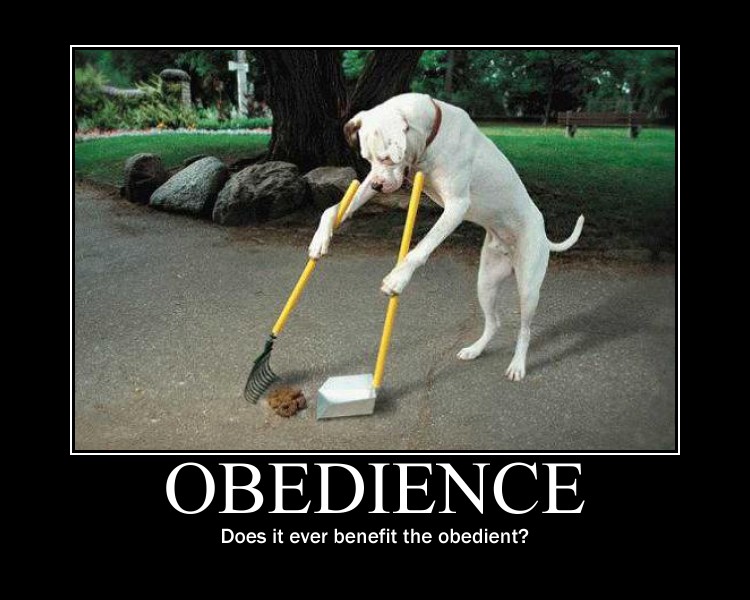The smart way to keep people passive and obedient
 Saturday, July 2, 2011 at 07:02AM
Saturday, July 2, 2011 at 07:02AM "The smart way to keep people passive and obedient is to strictly limit the spectrum of acceptable opinion, but allow very lively debate within that spectrum - even encourage the more critical and dissident views. That gives people the sense that there's free thinking going on, while all the time the presuppositions of the system are being reinforced by the limits put on the range of the debate." Noam Chomsky
Clear example: Vigorous debate over the content of the standards and national tests. Should we require specific 18th century British novels? If so, which ones? Excluded from the discussion: Should there be national standards and national tests? Stephen Krashen*
"Conversation" is a word I've heard bandied about a lot lately. Miguel Guhlin and Jennifer LaGarde both list topics they're tired of debating: copyright, education reform via staff development, e-books, social media in education, 21st century skills, etc. Like Miguel and Jennifer, I too get tired of reading** the same arguments, pleas, excuses, lamentations, diatribes, venting, rationales, denials, and oratories over and over - all with seemingly no impact on education.
Might the disatisfaction lie not with the topics themselves - they all seem very important to me - but with "the spectrum of acceptable opinion", as Chomsky puts it. Krashen argues that rather than debate what should be in national standards, we should be asking whether to have national standards at all. Are there other larger spectrum issues that we really ought to be talking about?
- Not how to make all students proficient at math and reading, but whether all people need to be proficient. (See Libraries for a Post-literate Society)
- Not whether schools should ban or allow personally owned student devices, but whether schools have the right to make such rules.
- Not whether we should have testing in schools, but whether schools should be using other metrics to determine educational effectiveness.
- Not whether technology use in schools results in "higher student achievement", but whether spending educational dollars on technology is moral when when there is no research on its effectiveness.
- Not whether to teach students to respect the intellectual property of others, but whether to teach the rights held by consumers of IP and how students' personal IP rights as creators.
Who or what limits the spectrum of discussion in education? The popular media? Big professional organizations? The U.S. Department of Education? A lack of technical skills that allow mainstream teachers to follow bloggers and tweeters and those writing from the trenches?
Perhaps an even more important question is: Who limits the spectrum of discussion in your school? Do districts and buildings keep some issues off the table? Why? And are there ways to allow such conversations that skirt the traditional conversational gate-keepers?
Hmmmmmmm.
Are you being kept "passive and obedient" by not addressing the bigger issues of educational policy? What are they? How is it done? How do you fight it?

* If you are not on Stephen Krashen's e-mail list, subscribe. Or follow at @skrashen on Twitter. He, along with Alfie Kohn, Diane Ravitch, and Susan Ohanian, is one of my educational heroes. Read them all.
** On reflection, I think ISTE this year felt somewhat disappointing because most of the sessions I attended re-tread old ground, stuff I'd been reading on blogs, tweets, etc over the past year. (Session proposals do need to be in early!) Next year I need to change my mindset from "new" to "deep", perhaps.









Reader Comments (5)
I think you took this post right off my keyboard ;) I had a similar dissatisfaction with the Ohio eTech conference in that it re-tread old ground too.
How'd you get your dog to pose like that?
HI J,
I've long used a bubble sheet test of standard dog poses to train my pets.
Thanks for asking,
Doug
I have just discovered your Blog - thank you for sharing and teaching all you do.
About obedience and limiting discussion: The librarians in the union at the National Library in Paris aren't "obedient"...(is this a cultural thing, I wonder...??): http://bibliothequesenlutte.wordpress.com/2011/09/24/wifi-a-la-bibliotheque-nationale-de-france-tous-les-syndicats-sur-la-meme-longueur-donde-et-certes-pas-celle-de-la-direction/
I did a search on the wifi topic on the ISTE website & only found this (to which no one replied): http://www.iste-community.org/forum/topics/childrens-environmental-health
There seems to be silence on this topic in Australian education.... This is an interesting site: www.magdahavas.com
The WHO reclassified electromagnetic radiation as a 2B possible carcinogen in May this year. PACE published recommendations for schools to go back to wired systems: http://assembly.coe.int/Mainf.asp?link=/Documents/AdoptedText/ta11/ERES1815.htm
I have a child and I support my child's and other children's learning through technology. I haven't had time to look at all the studies that prove technology does support learning (surely it does, though?). Maybe the writer of this news article has got it wrong?:
http://www.nytimes.com/2011/09/04/technology/technology-in-schools-faces-questions-on-value.html?pagewanted=1&_r=1
Anyway, I am just wondering about all these things.... it really is a dilemma trying to decide whether to put one's young child in a wifi environment from K-12 when there is this other side of the debate.....and one can easily feel like an outcast for even bringing the subject up.
It appears fibre optic is safest, plus the new Thunderbolt technology looks interesting.
This is an interesting disagreement between scientists over study results: http://www.emfacts.com/2011/10/the-environmental-health-trust-on-the-discredited-jnci-published-study-on-children-and-cellphone-use-part-3/
I am worried. I do not want to upset anyone by raising this issue, I do not want to stop children learning, I do not want to "hurt" the library or teaching professions. But there seems to be no help or discussion coming from the leaders in our professions.
Regards
Linda
Hi Linda,
I hope your comment may evoke some responses.
Doug
wherever one draws the line, that's where the fight takes place.